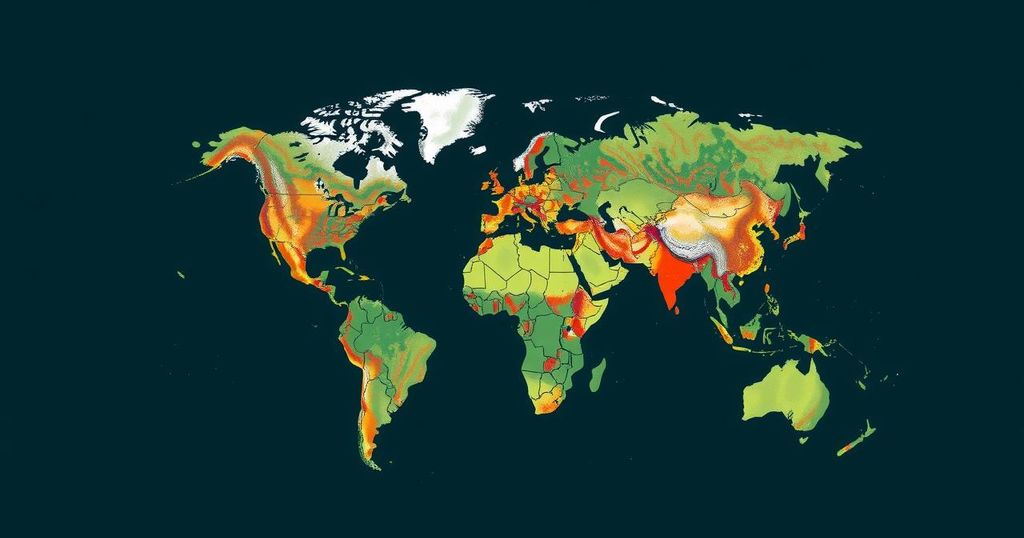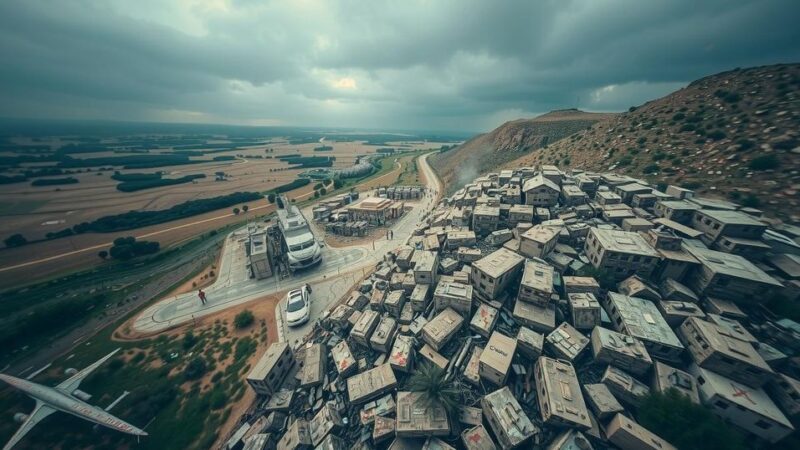Richer countries are starting to provide financial compensation to poorer nations affected by climate change disasters, with a $750 payment aiding a Malawian family who lost their home to Cyclone Freddy. A total of $720 million has been pledged, but experts warn it may be insufficient as extreme weather events increase. The COP29 summit is addressing how funds should be allocated to support developing countries in recovery and adaptation efforts.
In the early hours of the morning, floodwaters engulfed the home of Christopher Bingala, a subsistence farmer in Malawi, as Cyclone Freddy unleashed unprecedented rainfall. Despite managing to secure his children, he lost everything. Thanks to a new climate initiative, Bingala received approximately $750 as part of a compensation scheme directed at addressing climate-related damages in low-income nations. This compensation was designed to assist those adversely affected by climate change, particularly in countries that contribute minimally to greenhouse gas emissions.
The fund, amounting to $720 million mostly pledged by wealthier nations including the European Union and the United States, serves to aid developing nations already overwhelmed by severe climatic events. During the ongoing COP29 climate summit in Azerbaijan, leaders are debating the extent of compensation for impacts endured by poorer countries. Prime Minister Philip Davis of the Bahamas articulated the responsibility of wealthier nations: “We just hope that the global north and the nations whose economy is fueled by the emissions – they come to the plate and take up their responsibility to look at what they’re causing us.”
Bingala’s story exemplifies the urgent need for such financial support, as Cyclone Freddy displaced 650,000 individuals in Malawi alone, causing immense suffering. The aid provided allows families to rebuild their homes and restore livelihoods. Bingala utilized part of his funds to relocate to a more secure area, reducing the threat of future flooding, and allocates resources towards his children’s education.
This initiative began when Scotland allocated budget specifically for loss and damage funding, and organizations like GiveDirectly distributed these funds to the people in need. On average, approximately 2,700 households in Malawi received payments, enabling many to invest in critical necessities, underscoring the significant financial vulnerability of low-income households that often lack any robust safety nets. Yolande Wright from GiveDirectly noted, “Low-income households in low-income countries have far less protections from extreme events.”
However, experts caution that the pledged amount will fall short as the frequency of climate disasters escalates. Additionally, countries are striving to outline specific guidelines on the allocation of these funds to ensure that they extend beyond mere reconstruction, potentially addressing relocations or compensating for losses of environmental significance. Prime Minister Davis further emphasized the larger implications of inaction: “If they do nothing, they will be the worst for it. When my islands are swallowed up by the sea, then what do my people do? They’ll either become climate refugees or they’ll be doomed to a watery grave.”
The phenomenon of climate change has increasingly affected vulnerable populations, more so in low-income countries that contribute significantly less to greenhouse gas emissions. Wealthier nations, whose industrial activities have historically fueled emission increases, face pressure to acknowledge their accountability. In response, a fund has been established to deliver “loss and damage” payments to developing countries experiencing damaging effects of climate change. This compensation is seen as essential to support affected populations as they cope with increased seasonal extremes, including floods and droughts.
The establishment of a compensation fund marks a crucial step towards addressing the inequities imposed by climate change on vulnerable nations. Initiatives like those seen in Malawi illustrate the immediate needs of communities facing climate-induced disasters. However, with financial pledges remaining inadequately defined and their realization pending, the necessity for sustained, increased funding from wealthier nations will only grow. Collaborative responsibility is essential for mitigating the wider impacts of environmental degradation as the world faces increasing climate adversity.
Original Source: www.kanw.com




